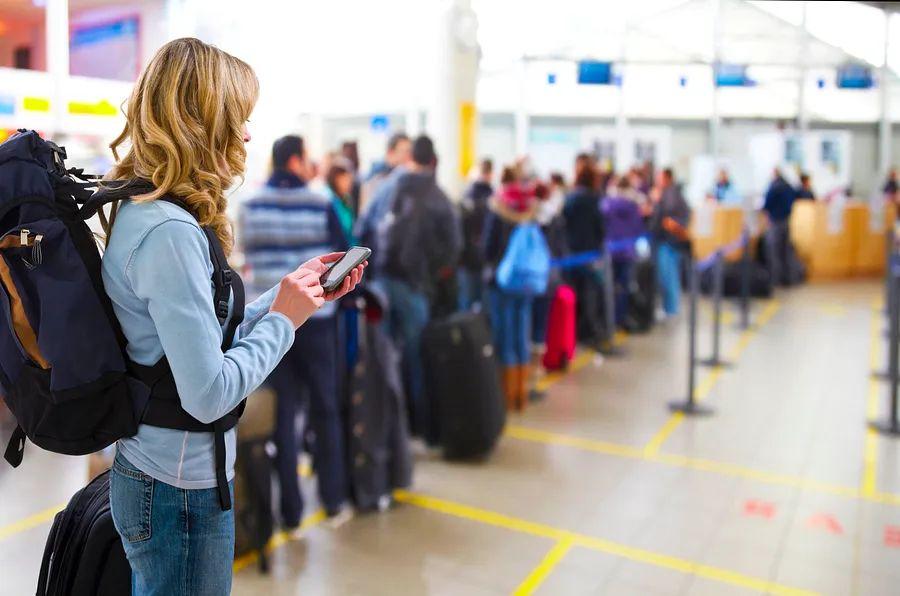Labor shortages and increased demand could lead to significant challenges for your summer travel plans

Brace yourself for another summer of fully booked travel. Labor shortages continue to impact many industries across the nation.
The travel sector feels this strain more than others. In March alone, an additional 75,000 jobs in leisure and hospitality were added, according to recent data from the U.S. Bureau of Labor Statistics. However, the industry will need to continue hiring aggressively to meet the expected surge in summer travel demand.
Air travel is particularly impacted by workforce shortages among air traffic controllers, flight attendants, pilots, ground crew, and food service personnel at airports.
Many industry stakeholders are advocating for government assistance to address these challenges.
"The federal government can assist in addressing staffing shortages by raising the limit on H-2B temporary worker visas and ensuring returning workers are permanently exempt from this cap," stated Geoff Freeman, president and CEO of the U.S. Travel Association, in a public statement.
The U.S. Travel Association has consistently highlighted labor shortages within the travel sector since visa policy changes were introduced in 2020 during the pandemic. As the industry resumed hiring in 2021 and travel surged, it became clear that staffing levels had not returned to pre-pandemic standards.
Despite executives from Delta Air Lines asserting in a quarterly earnings call last week that the airline and its partners were sufficiently staffed, significant shortages remain in various areas of the industry.
Labor shortages are ongoing, and hiring is rampant across the sector.
Airports have been especially hard hit by labor shortages, with some taking extraordinary measures to draw in more employees.
At Phoenix Sky Harbor International Airport (PHX), monthly job fairs showcase available positions, many of which offer wages above the minimum. For instance, Kind Hospitality operates four locations at PHX, including Fazoli's and O.H.S.O. Brewery in Terminal 4, as well as two Panera Bread restaurants in terminals 3 and 4. Cashiers earn an average hourly wage of $15.21, which is $1.36 above Arizona's minimum wage.
While they are currently staffed, hiring more employees would enable the restaurants to manage their schedules more effectively, according to Ashley Negron, spokesperson for Kind Hospitality.
Negron mentioned that baristas and cooks have been the hardest positions to fill, despite attractive benefits such as free parking, health and life insurance, short- and long-term disability, paid time off, complimentary meals during shifts, discounted meals off the clock, referral bonuses, and occasional sign-on bonuses.
As noted on the job fair website, the Transportation Security Administration at PHX is also recruiting, offering a $5,000 sign-on bonus along with a comprehensive benefits package that includes medical, dental, vision, and a federal retirement plan.
Amber Meshack, director of business, jobs, and social responsibility for Los Angeles World Airports, stated that airports in Los Angeles are also looking to hire.
"The most sought-after jobs include positions in retail and food service, which align with the predictable seasonal demands throughout the year," Meshack stated. "Currently, employers are preparing for the upcoming summer tourism season."
"Additionally, it's worth noting that technical roles (like mechanics and ground service operators), along with administrative and managerial positions, are also experiencing significant demand," Meshack added.
Representatives from vendors at both Phoenix and Los Angeles airports highlighted that the higher average wages provide a competitive edge. However, the stringent security requirements and the lengthy process for obtaining security badges pose challenges, particularly for those looking for immediate employment.
Shortages of air traffic controllers
 RAFAEL CORDERO/GETTY IMAGES
RAFAEL CORDERO/GETTY IMAGESStaffing shortages extend beyond airports and planes. Air traffic controllers remain in short supply, which could lead to additional challenges this summer.
Last year, persistent staffing issues at the air traffic control center in Jacksonville, Florida, contributed to ongoing cascading delays, leaving aircraft and crew members navigating through busy Florida airspace unable to reach their next destinations due to weather-related disruptions.
The situation in Jacksonville, as well as elsewhere, seems to have shown some improvement. However, with the Federal Aviation Administration hiring and training new controllers, a significant staffing gap at the FAA's New York-area control center could introduce new complications this year.
While the FAA and airlines have already implemented measures to decrease traffic in New York's airspace this summer to alleviate the burden on controllers, the facility is currently staffed at just 54% of the optimal level, according to the FAA, compared to the national average of 81%.
Therefore, even with the mitigation strategies the FAA has put in place, thunderstorms and other weather events could result in significant disruptions in the Northeast this summer, impacting the broader airline network as aircraft, pilots, and flight attendants become misaligned.
Complaints to the DOT are increasing
According to the latest Air Travel Consumer Report from the U.S. Department of Transportation, complaints about airline services rose by 55.3% in 2022 compared to the 49,991 complaints recorded in 2021.
Out of the 77,656 complaints documented in 2022, 24,647 (31.7%) were related to flight issues (including grievances about the lack of reimbursements for expenses tied to these problems), 19,983 (25.7%) were about refunds, and 12,007 (15.5%) pertained to baggage issues, as per the data.
Implications for travelers
 Travelers pass through a TSA PreCheck checkpoint sign at Chicago's O'Hare International Airport. DANIEL ACKER/BLOOMBERG/GETTY IMAGES
Travelers pass through a TSA PreCheck checkpoint sign at Chicago's O'Hare International Airport. DANIEL ACKER/BLOOMBERG/GETTY IMAGESAs air travel shows no signs of slowing down, what should travelers expect this summer? For starters, bring plenty of patience.
Staff shortages at airports may lead to longer lines, so it's wise to plan ahead and have a backup strategy in place. Did you experience the Southwest meltdown during the holidays, or were you one of the unfortunate travelers with lost luggage? If you're eager to avoid similar issues this year, keep reading.
Here are some valuable tips from TPG travel experts:
- Enroll in TSA PreCheck or Clear to speed up your security process. If you have both, choose the shorter line.
- Opt for a carry-on whenever possible. This saves on baggage fees if you lack a cobranded airline credit card or elite status, plus it mitigates the risk of lost luggage.
- If you must check a bag, consider using a tracking device like an Apple AirTag. Many TPG writers and readers have found it invaluable in recovering lost luggage.
- Book the first flight of the day. These flights typically arrive the night before, reducing the likelihood of delays. Nonstop flights also help avoid unexpected layovers.
- Consider booking a backup flight. Using points and miles for a backup can save your trip if things go awry, just remember to cancel before departure to have your miles returned.
- Select a credit card that offers travel protections such as trip interruption and cancellation insurance. Even if traveling on an award ticket, paying the taxes with these cards will provide coverage.
In summary
A shortage of baggage handlers, air traffic controllers, pilots, and security personnel at check-in and boarding areas could lead to chaos this summer.
It’s unlikely that all the vacant positions at U.S. airports and airlines will be filled before the peak summer travel season. Therefore, plan ahead as much as you can and heed the tips mentioned earlier.
Wishing you the best of luck!

1

2

3

4

5
Evaluation :
5/5